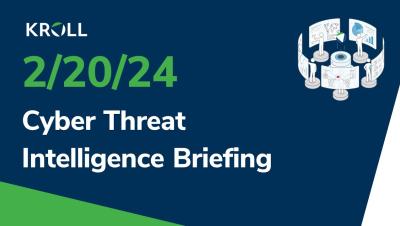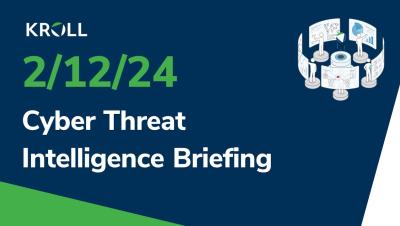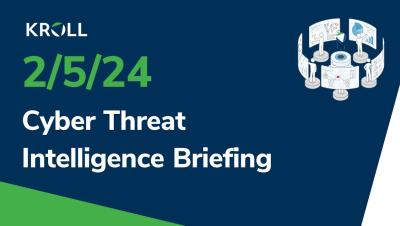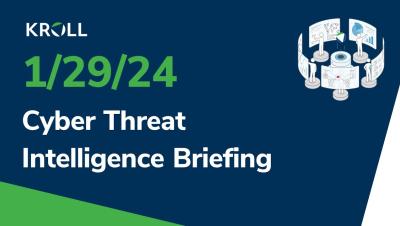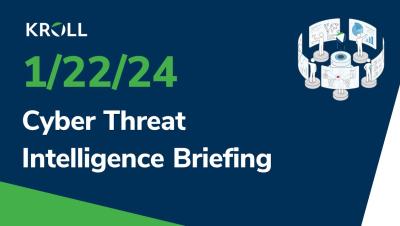Q4 2023 Cyber Threat Landscape Report: Threat Actors Breach the Outer Limits
Kroll’s Q4 analysis shows ransomware groups increasingly gaining initial access through external remote services. The quarter presented a complex security landscape with a mix of both positive and negative trends: positively, activity associated with larger ransomware-as-a-service (RaaS) operations, like LOCKBIT and BLACKCAT, declined.



